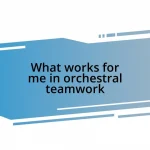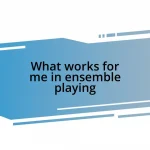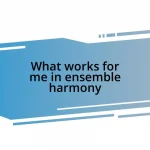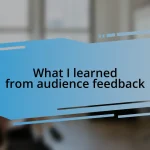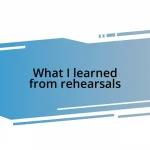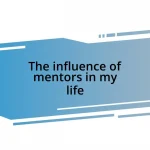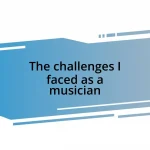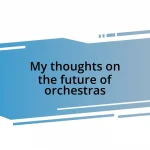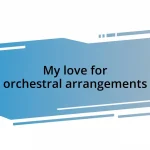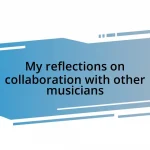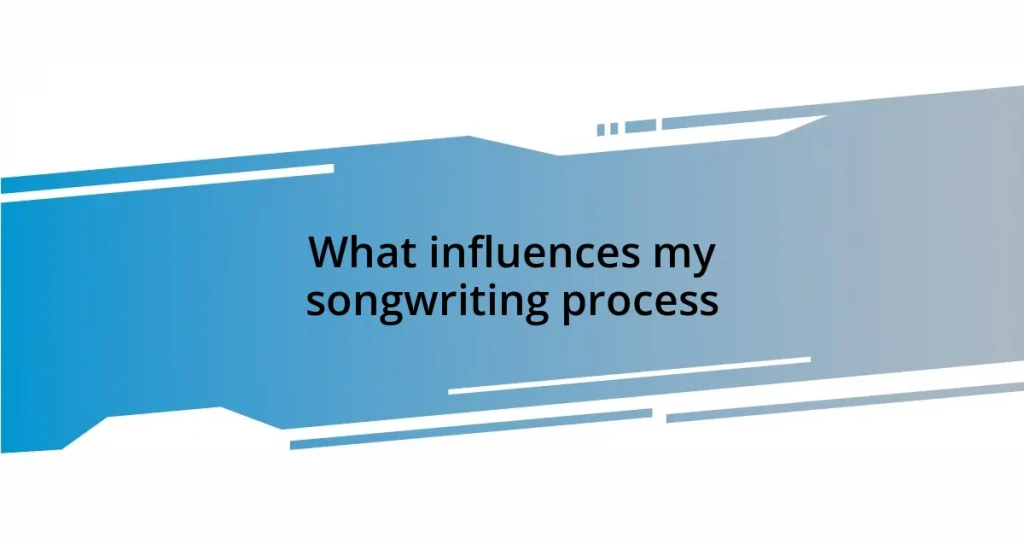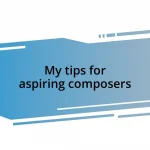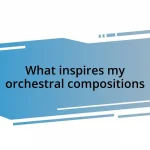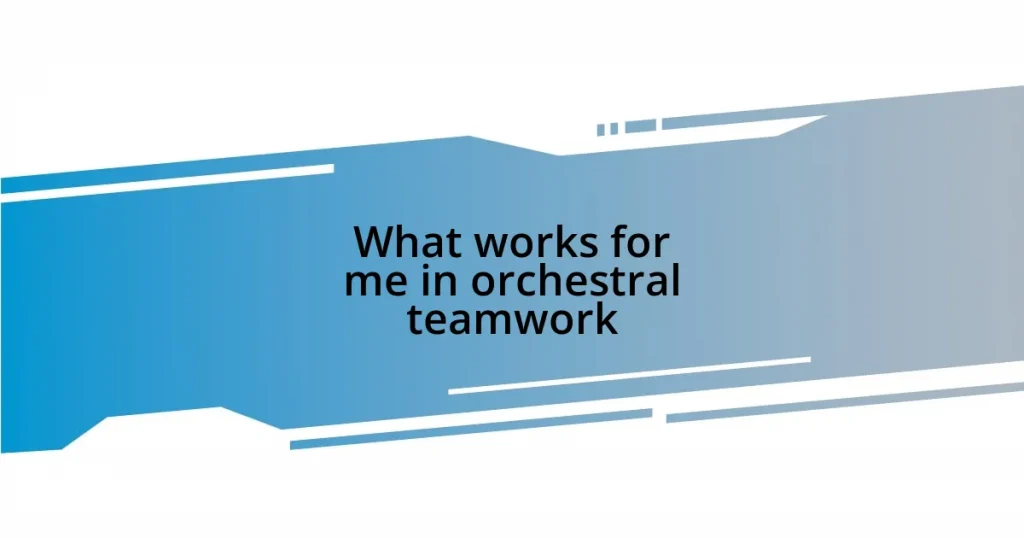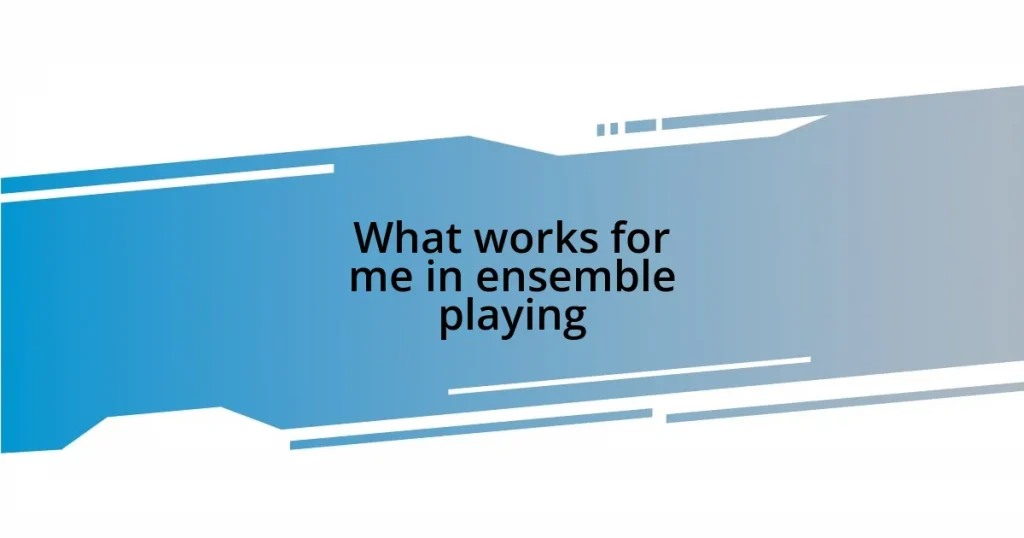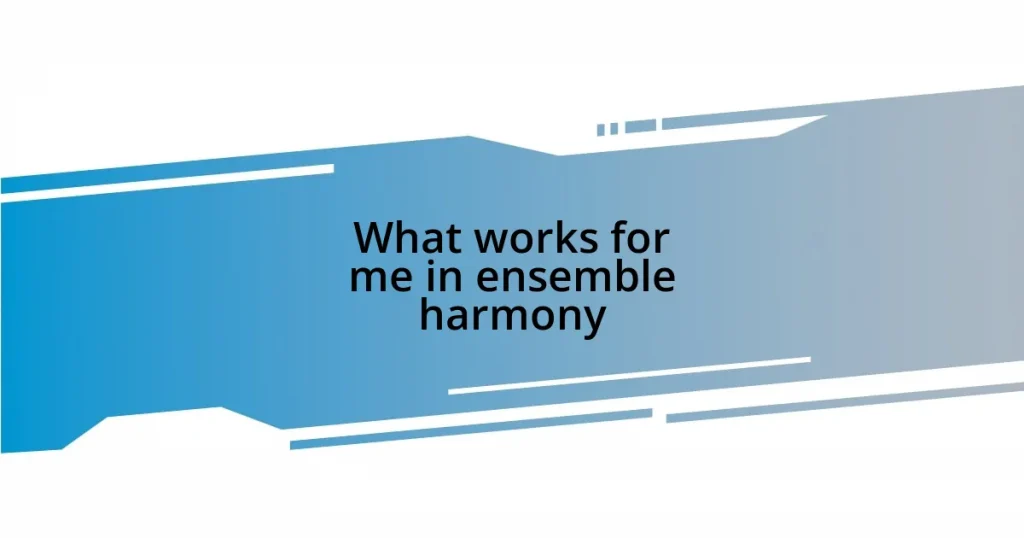Key takeaways:
- Surroundings and emotions significantly influence the songwriting process, often providing inspiration or a cathartic release.
- Collaboration with other musicians exposes fresh perspectives and enriches the creative process.
- Changing song structures and composition techniques can evoke different emotions and enhance storytelling.
- Methods like stepping away for fresh air or experimenting with different genres help overcome writer’s block and stimulate creativity.
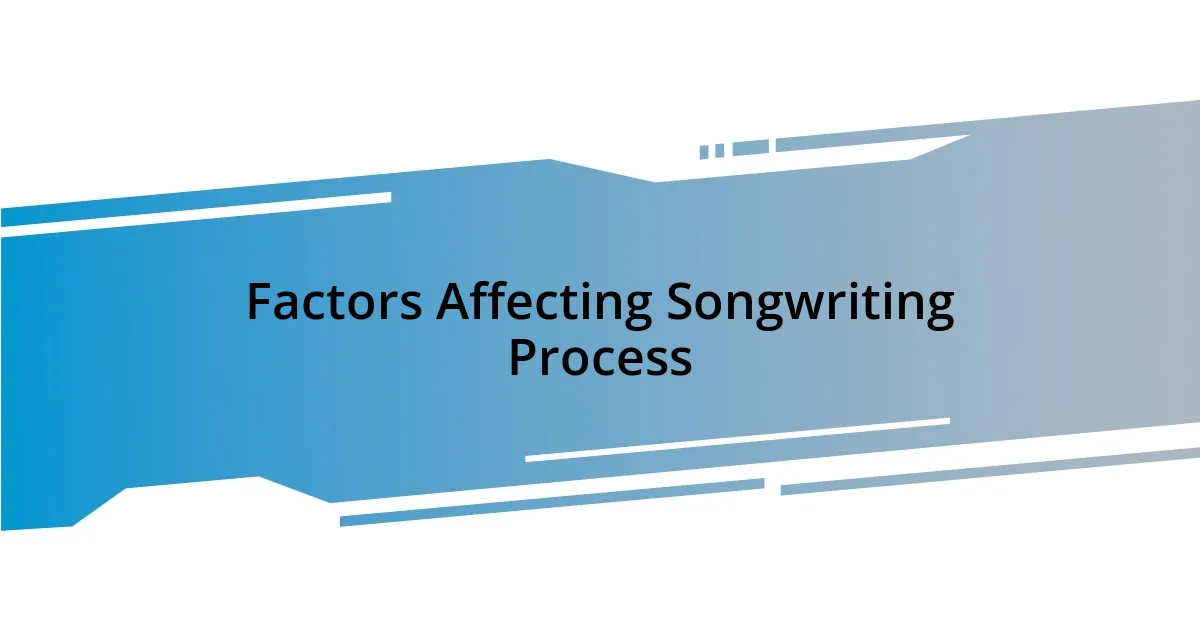
Factors Affecting Songwriting Process
When I sit down to write, my surroundings often play a significant role in my creative flow. I remember one evening when I was at a quiet café, sipping coffee while the rain pattered against the windows. The gentle ambiance sparked a wave of inspiration that led to one of my favorite songs. Have you ever noticed how a change of scenery can shift your mindset? It’s as if the environment itself whispers ideas into your ears.
Emotions are another powerful force in my songwriting process. There was a time when I faced a tough breakup, and the feelings of heartache poured out of me onto the page like an uncontrollable river. Writing during that period was cathartic; I found that translating my pain into lyrics helped me process my feelings. What emotions resonate with you the most when you create? It’s fascinating to see how personal experiences can deeply influence our art.
Collaboration is something I cherish, too. Working with fellow musicians exposes me to fresh perspectives and diverse ideas that spark new directions for my songs. I recall a session with a co-writer where we spent hours exchanging stories and melodies, blending our styles in ways I had never imagined. Don’t you think that sharing the creative process makes songwriting even richer and more meaningful?
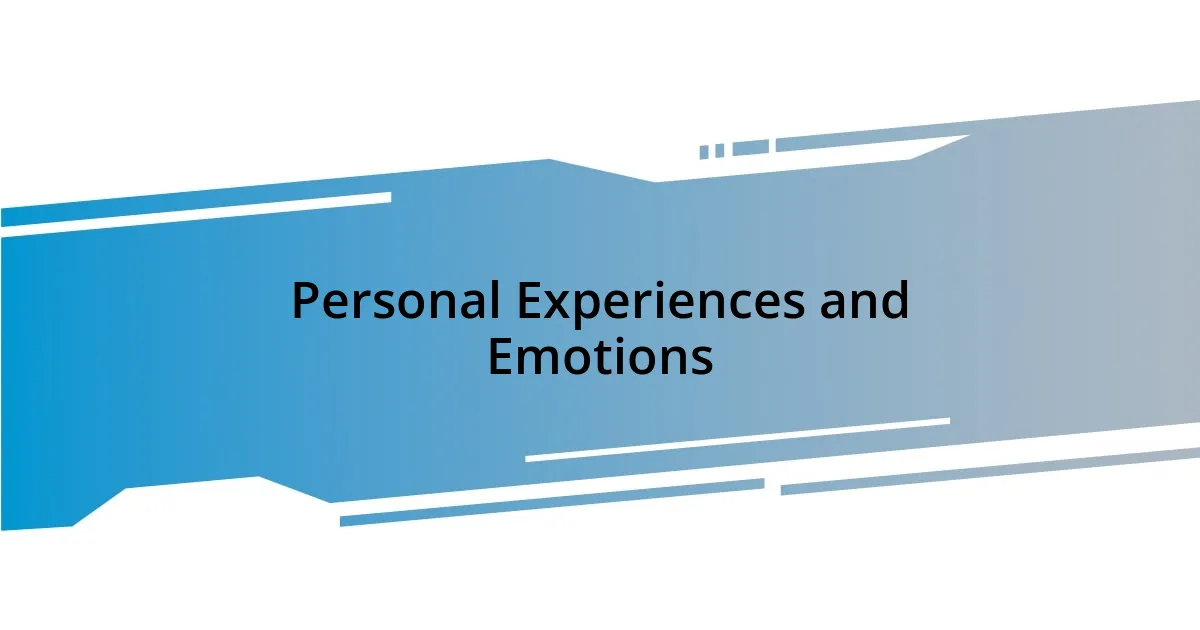
Personal Experiences and Emotions
Personal experiences shape my songwriting in profound ways. I remember a summer when I lost a dear friend to illness. The grief was overwhelming, yet it pushed me to articulate my sorrow through melodies and lyrics. That experience taught me how deeply raw emotions can fuel creativity, turning pain into something beautiful.
- Reflecting on personal stories helps me connect with listeners on a deeper level.
- Memories of joyful moments often inspire upbeat tempos and lyrics.
- Emotions like nostalgia, anger, and love play pivotal roles in shaping the themes of my songs.
- Writing about specific life events allows for a genuine and relatable connection.
- The act of transforming my emotions into music often feels like a necessary release.
Every time I write from a place of personal experience, it reminds me that I’m not just creating art; I’m sharing a piece of my soul.
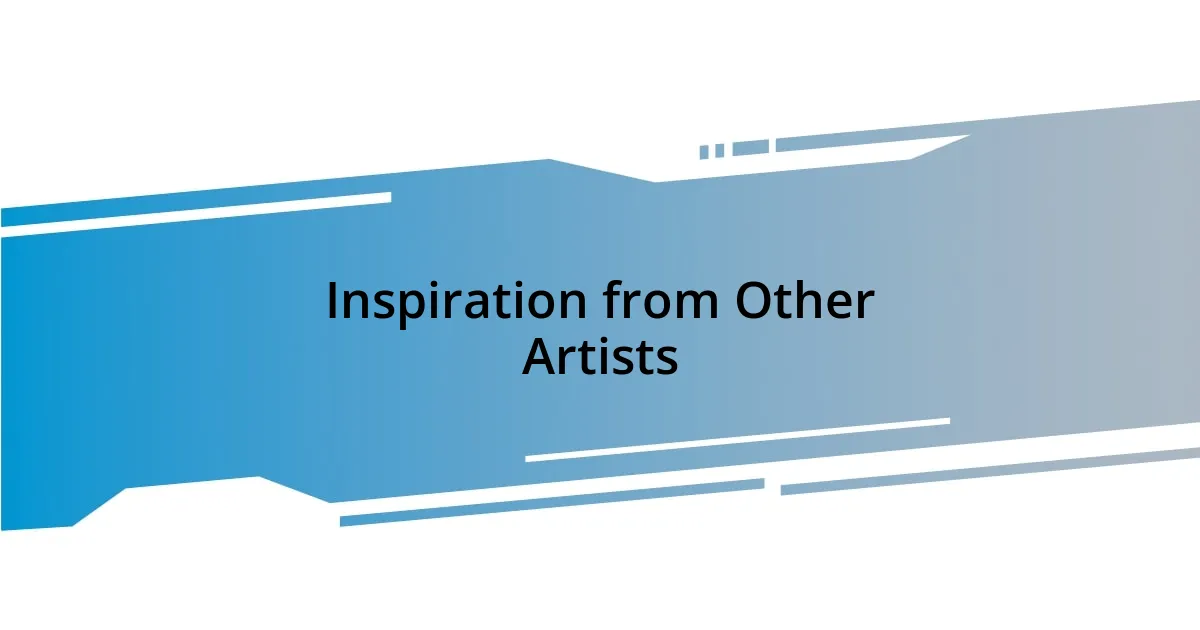
Inspiration from Other Artists
Inspiration from other artists can be a treasure trove for my songwriting. I often find myself listening to legends like Bob Dylan and Joni Mitchell. They weave stories and emotions into their lyrics in such a way that it makes me want to dig deeper into my own narratives. Have you ever been moved by a song so much that it made you pick up your pen? I remember the first time I heard “A Case of You” by Mitchell; the vulnerability in her words prompted me to explore my own feelings of love and longing.
I also draw inspiration from contemporary artists. For instance, I’ve found myself captivated by Hozier’s blend of poetic imagery and soulful sound. His song “Take Me to Church” opened my eyes to how you can transform societal themes into personal narratives. This connection between the artist’s message and the listener’s context encourages me to be bolder with my own lyrics. When was the last time a song changed your perspective?
Through the art of sampling or lyrical homage, I create a unique dialogue with the past. Each riff or lyrical nod serves as a bridge linking my thoughts to those who came before me. The thrill of intertwining my voice with theirs feels like an artistic conversation, enriching my creative process and reminding me that music is a timeless exchange.
| Artist | Inspirational Elements |
|---|---|
| Bob Dylan | Storytelling and emotion-driven lyrics |
| Joni Mitchell | Vulnerability and personal narratives |
| Hozier | Poetic imagery and societal themes |
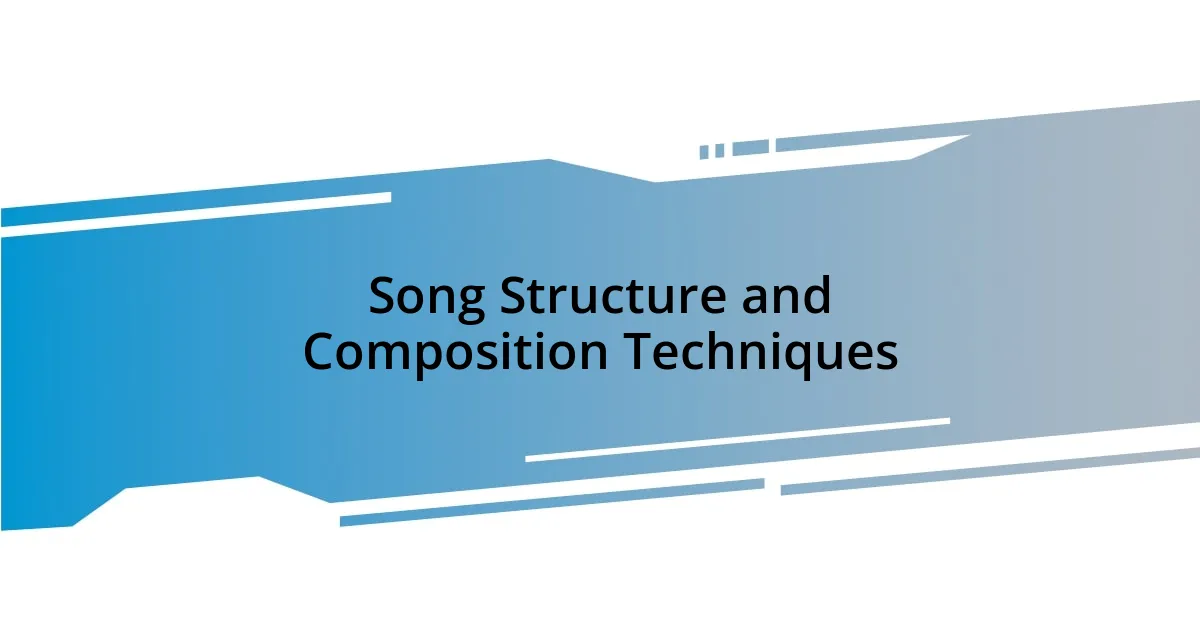
Song Structure and Composition Techniques
When I think about song structure, I’m often reminded of the importance of the verse-chorus dynamic. Verses set the scene, building the tension, while choruses bring the emotional climax. I recall a time when I experimented with an unconventional structure in a song and how liberating it felt. Have you ever broken free from the rules just to see where your creativity could take you?
Composition techniques also play a significant role in my writing process. I love layering different melodies to create a rich soundscape. During one writing session, I decided to mix a classic folk melody with a hint of jazz chords, which brought an unexpected depth to my song. It made me realize how innovative combinations can evoke emotions that resonate with listeners.
Rhythm is another crucial element I pay attention to. I often find that shifting the tempo can completely change the vibe of a piece. Have you ever tried writing a song and noticed how quickly a change in rhythm can alter your mood? I remember a specific track where a faster beat transformed my lyrics from somber to hopeful, illustrating just how powerful song structure and composition can be in shaping the storytelling process.
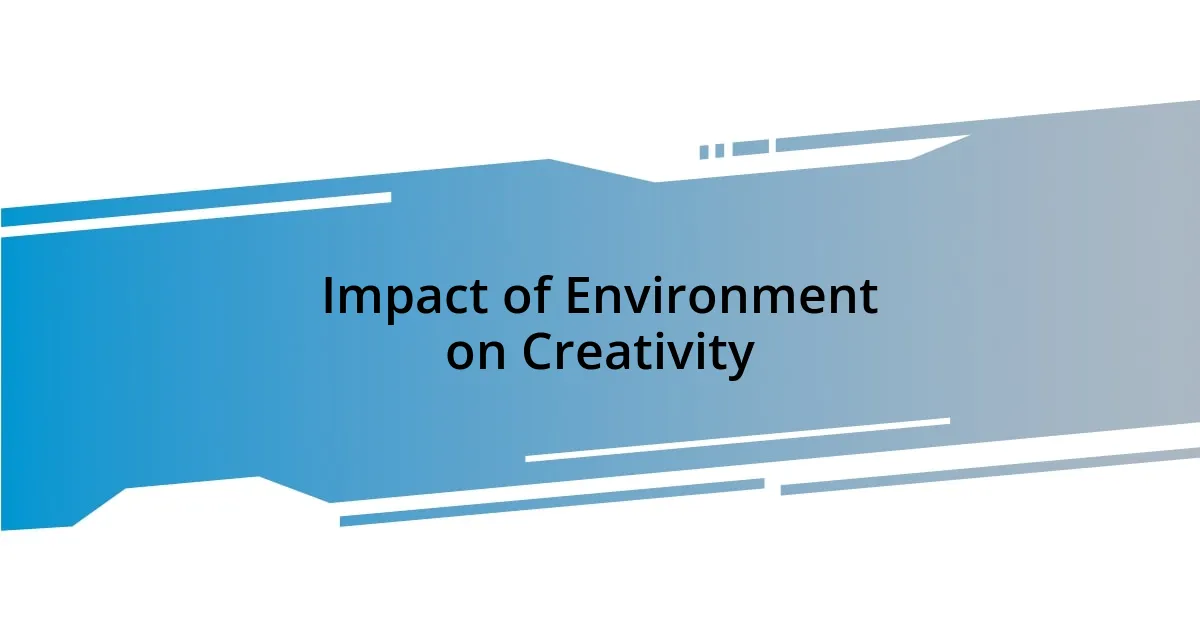
Impact of Environment on Creativity
It’s fascinating how my environment shapes my creativity. When I’m in a bustling café filled with chatter and laughter, I feel a surge of energy that seeps into my writing. I can recall a rainy afternoon spent in one of my favorite coffee spots, where the sounds of the rain hitting the window mixed with the hum of conversations sparked a flurry of ideas for a new song. Have you ever noticed how a specific place can stir emotions you didn’t even know you had?
On the flip side, when I retreat to a quiet room surrounded by nature, a different kind of magic happens. The stillness lets my thoughts flow freely, turning introspection into inspiration. I vividly remember sitting on my porch, listening to birds chirping while sipping tea, it felt like the world paused, allowing my mind to dive deep into uncharted emotional territories. Can you think of a time when silence led you to a breakthrough in your own thoughts?
Even the visual elements of my surroundings play a pivotal role. Bright colors, beautiful art pieces, or even the disarray of a well-lived-in space can evoke memories and feelings that find their way into my lyrics. There was a moment when I was struck by an abstract painting on my wall; it reminded me of the complexity of emotions in relationships. The artwork challenged me to express those convoluted feelings through song. What about you? Have you ever been inspired to create just by looking around you?

Methods for Overcoming Writer’s Block
Sometimes, the pressure to create can feel paralyzing, but I’ve found that stepping away from the desk helps. Taking a walk in nature, for instance, has a miraculous way of clearing my head. I remember one afternoon, overwhelmed by a blank page, I strolled through a nearby park, and the rhythm of my footsteps seemed to sync with the melody I couldn’t coax out before. Have you experienced how a simple change of scenery can breathe life back into your creative process?
Another method I swear by is switching up my routine. For example, I often challenge myself to write in a different genre or style, even if it’s just for fun. One time, I sat down to pen a rap instead of my usual ballad approach. The constraints of crafting something new ignited my creativity, and by the end, I hadn’t just broken through the block—I had duplicated my usual lyrical flow in a fresh context. Have you tried experimenting within different genres? It often reveals hidden connections in your writing.
Lastly, collaborating with fellow musicians can spark those elusive ideas. I recall a writing session with a friend where we simply tossed lyrics back and forth, and suddenly, a chorus emerged that neither of us expected. That collaborative energy can break down mental barriers and expose new perspectives, inviting spontaneity into our songcraft. What about you—have you found that sharing your creative struggles leads to a breakthrough?

